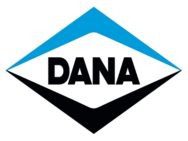Issues With Your Heavy Machinery?
Some Symptoms of Possible Torque Converter Problems

If you’ve been in this field long enough, you’ve likely dealt with a few common torque converter problems. Although we are confident in the excellent capabilities, and reliability, of the torque converters we provide, we also know that problems do occasionally arise. Considering the extreme mechanical feats of your heavy machinery, and the tasks required of the torque converters in those machines, this makes sense. What also makes sense, then, is being prepared.
We’d like to take a minute and look at three common torque converter problem symptoms to help you recognize when something has gone wrong. If you spot the problems early, they will be much easier and cheaper to fix.
Symptom One – No Power From The Converter
A torque converter failure can seriously ruin a good day. You’re out in the field, slamming away at some major task worthy of an episode of Modern Marvels, and suddenly your giant Tonka starts pushing like it did when you were a kid. The engine’s running, and the pedal is pumping, but you’re getting nothing out of it. As the name suggests, your torque converter plays a vital role in converting horse power to torque. When you need it to provide you with power, you need to allow enough time for pressure to form. If it doesn’t, you won’t get the power you need. Give it time, don’t force it, and you may save yourself from a bad day.
Symptom Two – Surging and Lagging
The death lurch. We all know it’s coming, but we never expect it to actually happen. Some machines go way too young, others seem to last forever. But so many good machines could be saved each year if owners payed attention to a few telltale signs of torque converter problems. The shudder. The jerk. They’re not dance moves, they’re problems. If your machine is surging or lagging during operation, and can’t maintain constant speed, power or lift, then you may be dealing with erratic converter fluid pressure or flow. This could be due to low converter fluid in the day tank and/or air present in the converter fluid circuit. Check these levels, take care of them, and you won’t regret the extra time you spent on getting extra time from your converter.
Symptom Three – Power Loss Due to Clutch Slippage
Sometimes, after heavy acceleration, your clutch may slip. It may make you think that the converter is losing power, and that’s understandable. That’s what it feels like. But the engine is making power that the torque converter never sees, and it’s just the master clutch assembly that’s not transferring that power. With a simple clutch adjustment, you could be up and running in no time. If this condition goes untreated for too long, however, excessive damage will occur to your master clutch assembly, requiring removal and replacement. The key to saving money is maintaining your equipment and fixing problems quickly, before they grow into bigger problems.
The K&L Conclusion On Torque Converter Failure
At K&L Clutch, we provide only top-of-the-line torque converters from brands like Twin Disc, Allison, Clark, American, Link Belt, and Manitowoc. But in those rare times when problems arise, our unparalleled service department can get you back up and running again in no time — whether that’s from our home in Hurst, Texas, or from just about anywhere in the world you need us to be. Take a second from time to time to inspect your torque converter for visible problems like fluid levels, pressures and clutch adjustment to catch potential problems before they show up, but know that we’re here for you when more serious problems arise.

























